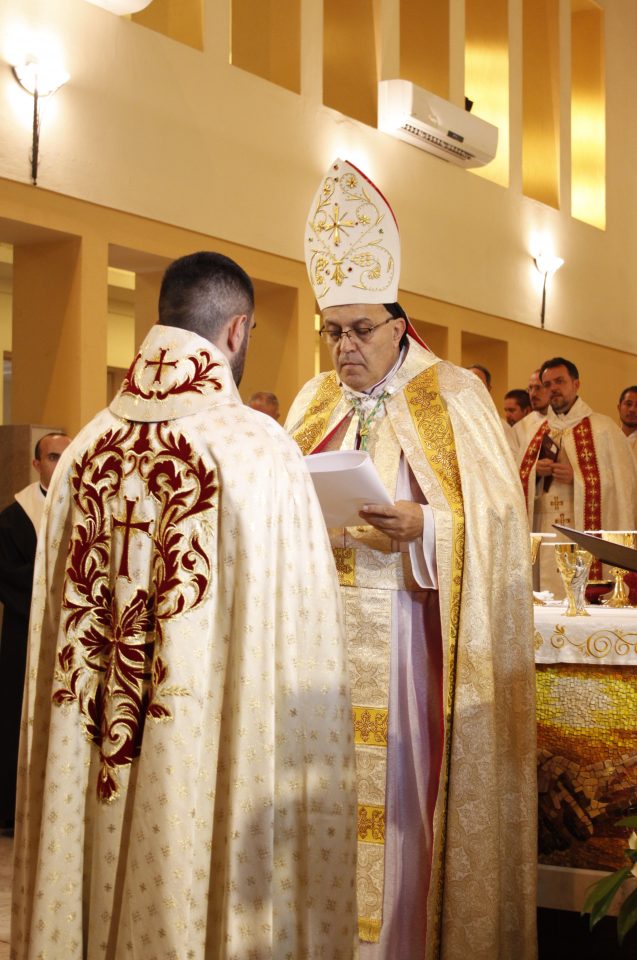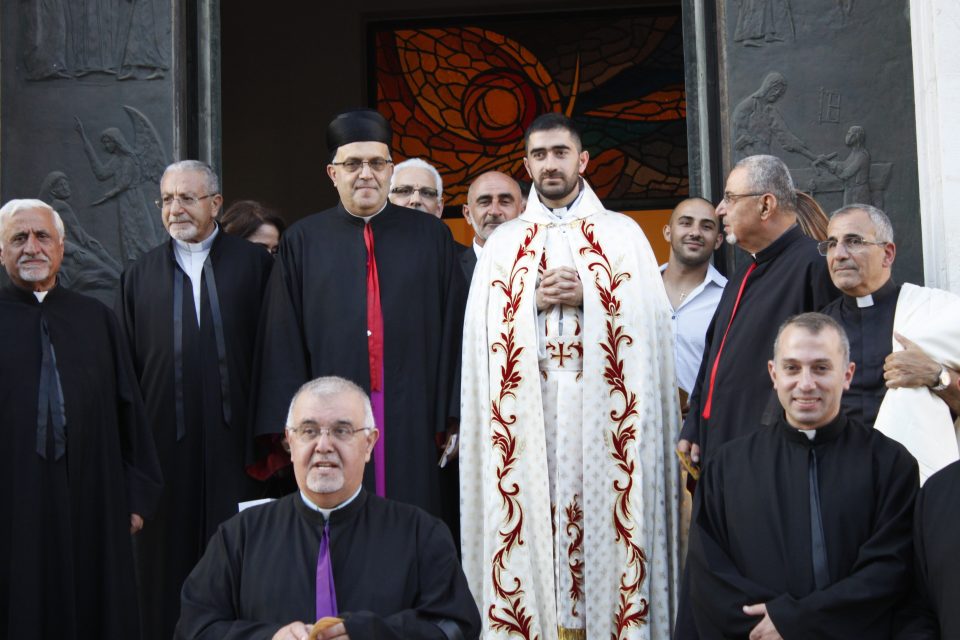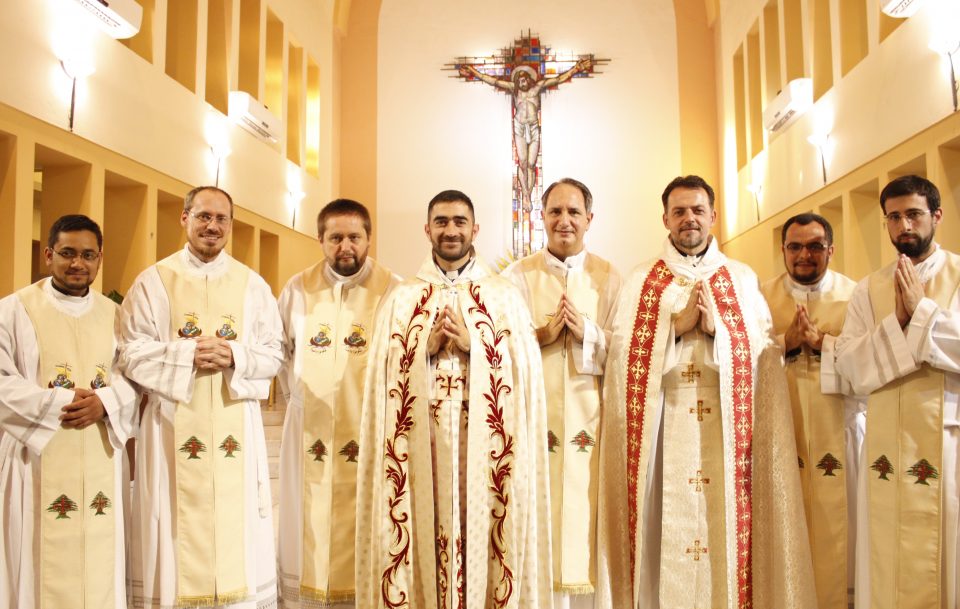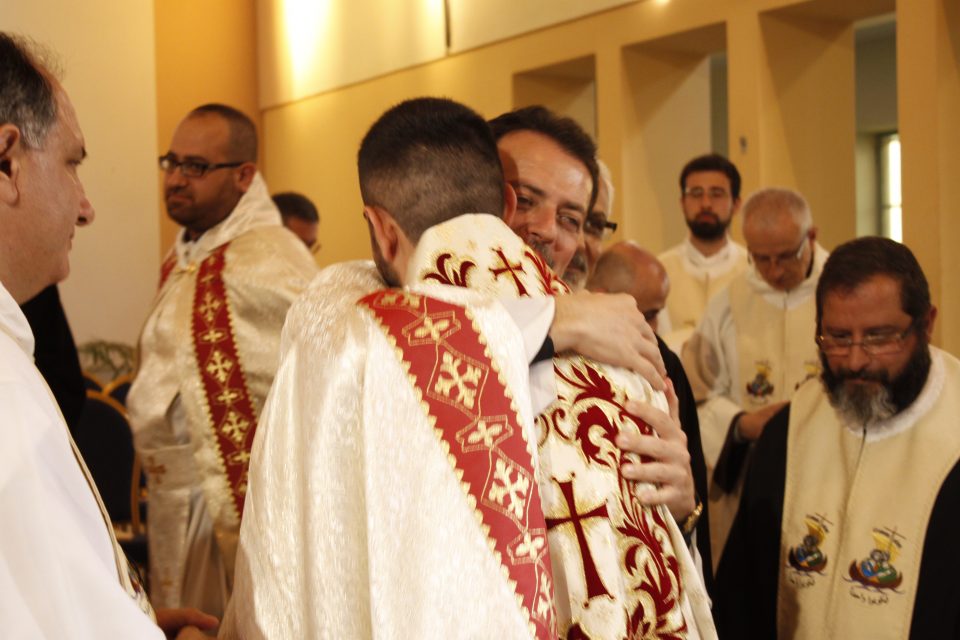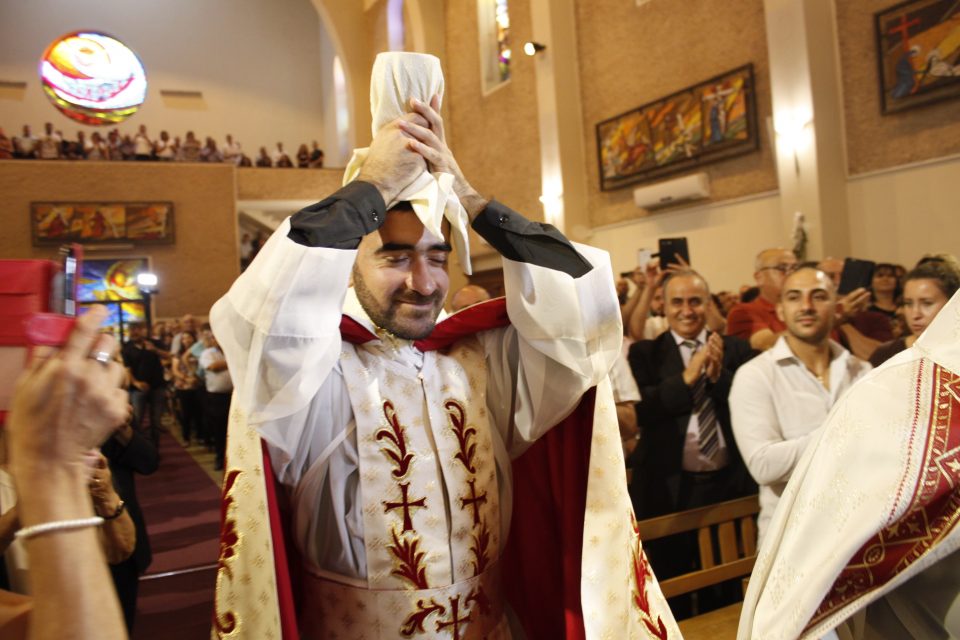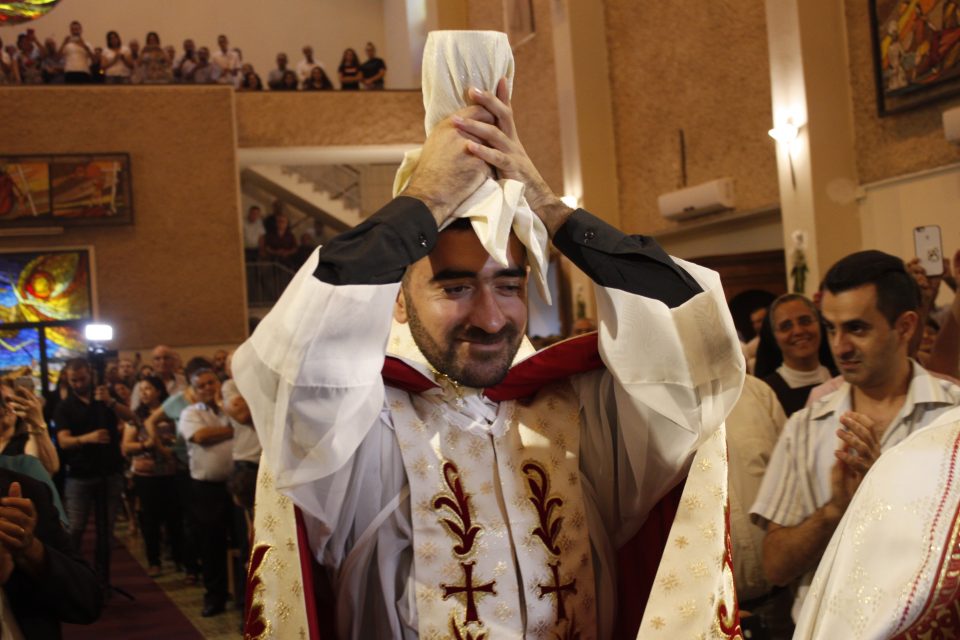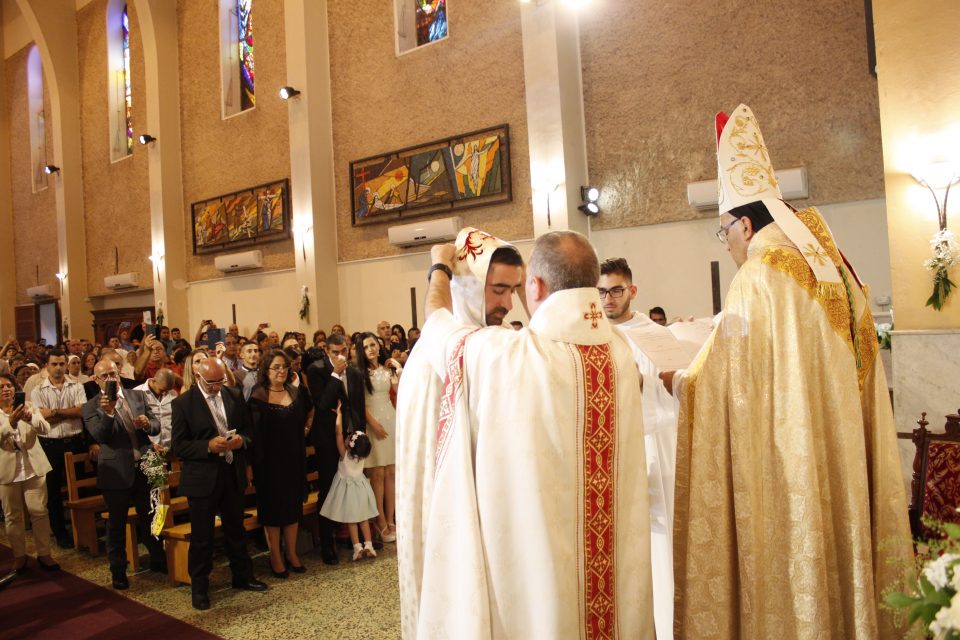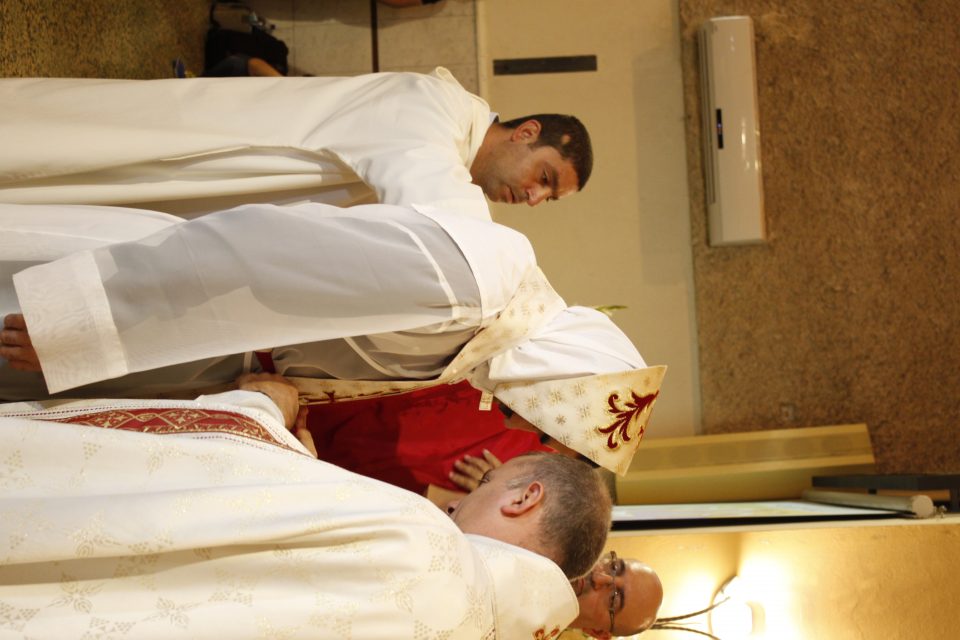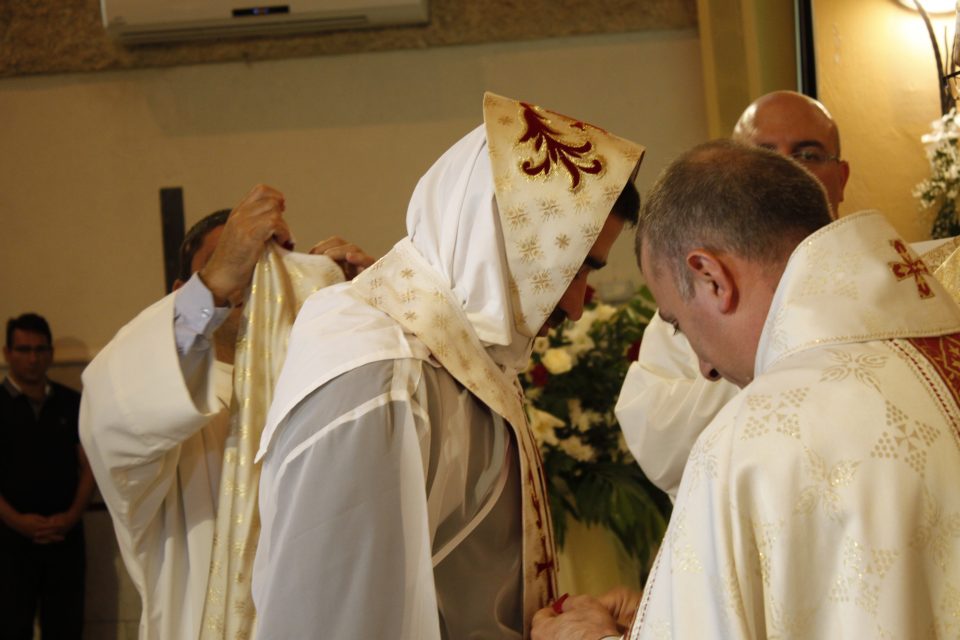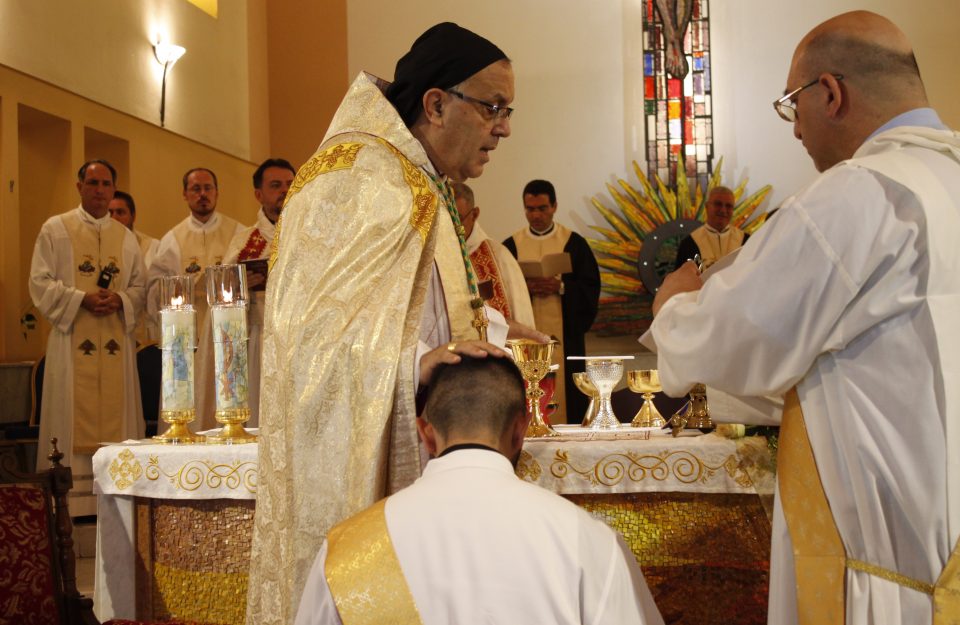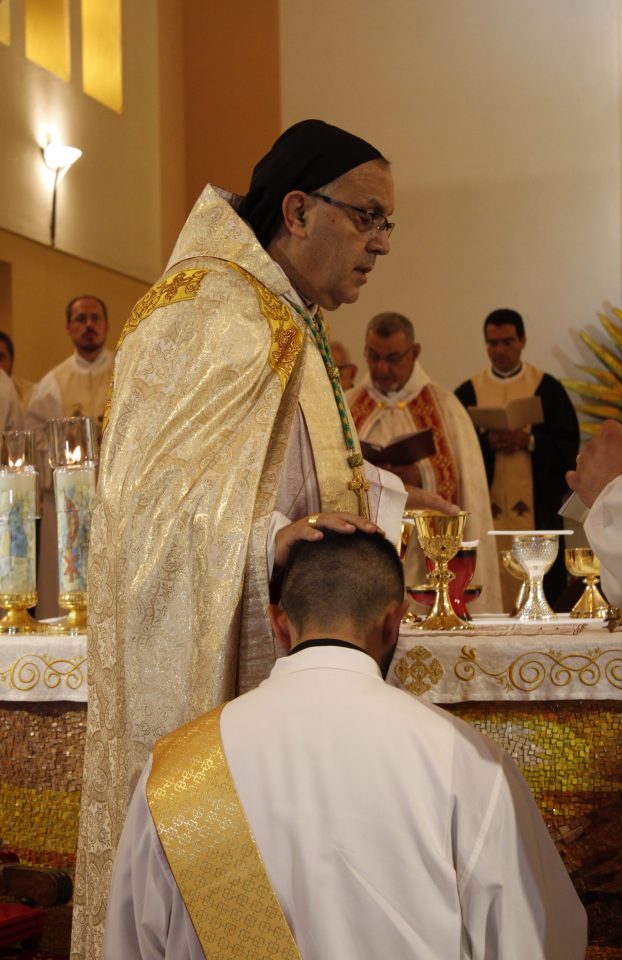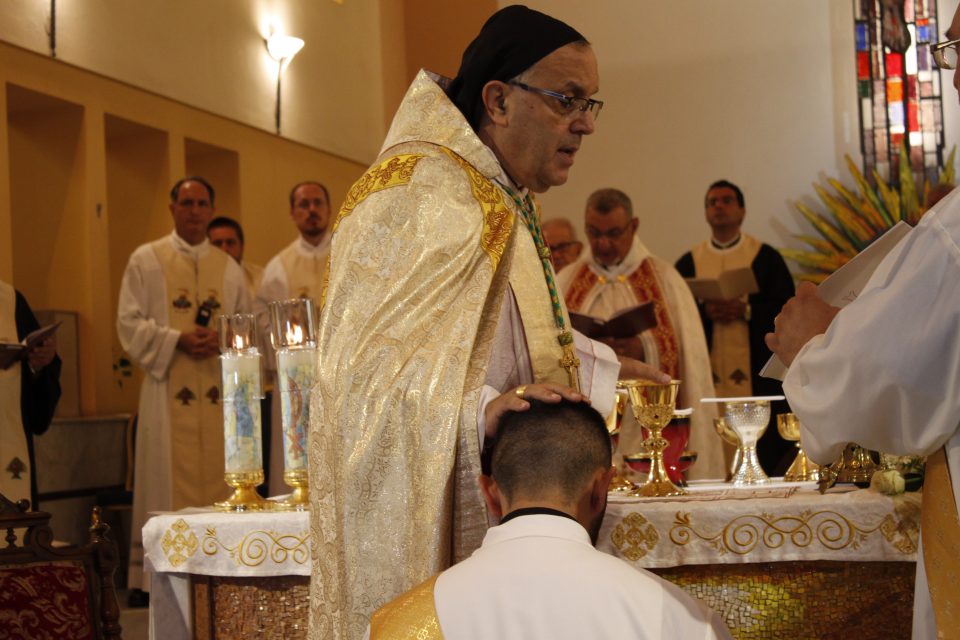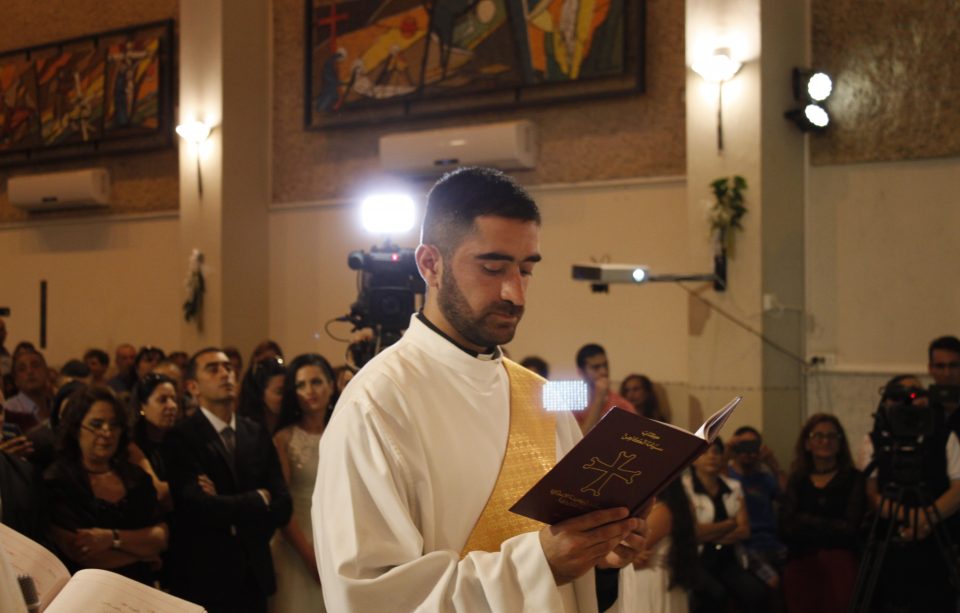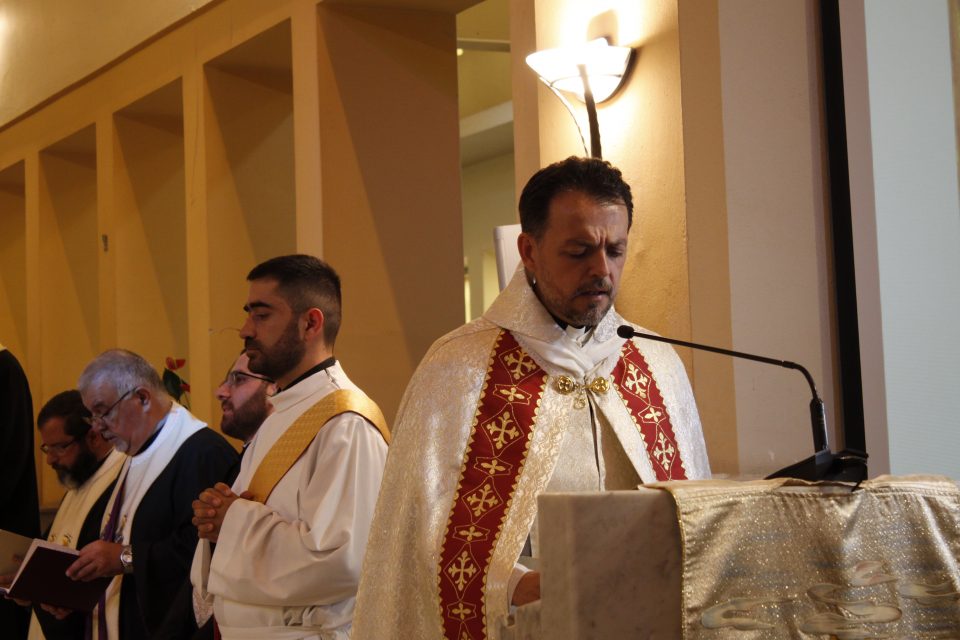(Haifa, Friday, June 23) The palm of a bishop’s hand on the Qurban, the consecrated Eucharistic species, and the other on the head of the candidate for priesthood.
It is one of the many intense and meaningful gestures in the liturgy in which Rodi Noura, Lebanese Catholic of Maronite Rite, was ordained a priest in Haifa, Israel, by His Excellency Moussa El-Hage, Maronite Archbishop of Haifa and Of the Holy Land.
Crowded with faithful, the Latin parish of St. Joseph. In the collected and attended celebration, marked by many Oriental hymns, in which was prayed in Arabic for Pope Francis, along with the presidents of the Antiochian Maronite Church in the Holy Land. There was no lack of invocations and prayers in Syriac and Aramaic, the language spoken by Jesus.
We gather today – emphasized the bishop in the homily – the fruit of a vocation born from a particular community, within our community.” A strong sign if one considers that the faithfuls of Maronite rite are already a minority, within the Christian minority in Israel.
And the new priest is a refugee: fled with his family from southern Lebanon in 2000, to save his life.
“The difficulties and trials were unable of turning off the light of the faith, safe kept in the family and nurtured in the Redemptoris Mater Seminary of Galilee, where Rodi was formed” said Msgr. Moussa. Next to him concelebrated numerous Maronite, Latin and Greek-Catholic presbyters.
To animate the celebration, were the Maronite choir with its traditional instruments and the Psalms sung by the seminarians, companions of studies and mission of Rodi: youth from many and different nations, who walk together with the Arab brothers in the communities of the Neocatechumenal Way of northern Israel.
Emblematic were the liturgical signs of ordination, which, according to the Maronite rite, largely took place behind the humeral veil, signifying the mystery and the dignity of consecration; among them, the prayer and the symbolic imposition of the “helmet of faith” – a stole to cover the head – and the “waistband”, a band symbolizing chastity. Touching was the symbolism of the blessing which springs from the Eucharistic species.
After the invocations, the neo-ordained, dressed with the stole (batrashil), recurred in procession the Church nave, putting on the head the cup with the Blood of Christ, in the rush of the applauses of the faithful, moved and filled with joy, at the sight of such an unusual yet expressive gesture. The Maronite liturgy puts in relief the sense of the salvation and the grace granted to those whom present themselves to the Lord with an open and available heart.
“We have had to flee from our land and our house in the blink of an eye- remembers Rodi. My father phoned to alert us, and within 15 minutes we left everything, without being able of looking back. I was 13 years old and this tear, and then transplantation in Israel, has been a painful event that in the following years has provoked in me doubts and many questions about God, a real crisis.” He talks with a striking serenity and firmness for his 30 years.
“I certainly did not think becoming a priest nor did I want to be in Israel, I no longer wanted to go to church, and I lamented being born in that family. Thanks to the catechesis heard in the Neocatechumenal Way, in the last years I have discovered that God has used that suffering to transform it into a cross of glory, an occasion of encounter with Him and His love for me. In the hands of God everything is transformed.”
The young man says, next to him is his father, a man with a grave and contemporaneously mild eye, who has risked much because of the war in southern Lebanon. A conflict of which little has been said, for being unknown to most. Today Rodi is witness among his people that the announcement of the Gospel heals and saves, and will be at the service of the Maronite Church.
He is the tenth ordained priest, a vocation grown in the community of Me’elia in Upper Galilee and in the Redemptoris Mater. Erected nearly ten years ago on the Mount of Beatitudes, the Latin International Seminary welcomes vocations from the Holy Land and from the farthest countries (South America, Poland, Canada, Italy, Spain) and candidates coming from other Eastern Catholic churches: all are formed to serve the local church, being open to the universal mission and especially to the Middle East.
The past 10 June, the Apostolic Administrator Msgr. Pierbattista Pizzaballa ordained two priests for the Latin Patriarchate of Jerusalem: Giovanni Falorni, from Tuscany, and Juan Manuel Silva Lopez, Colombian. Three Italians so far have been ordered: Davide Meli, Paolo Alfieri, and Giovanni.
Sara Fornari

